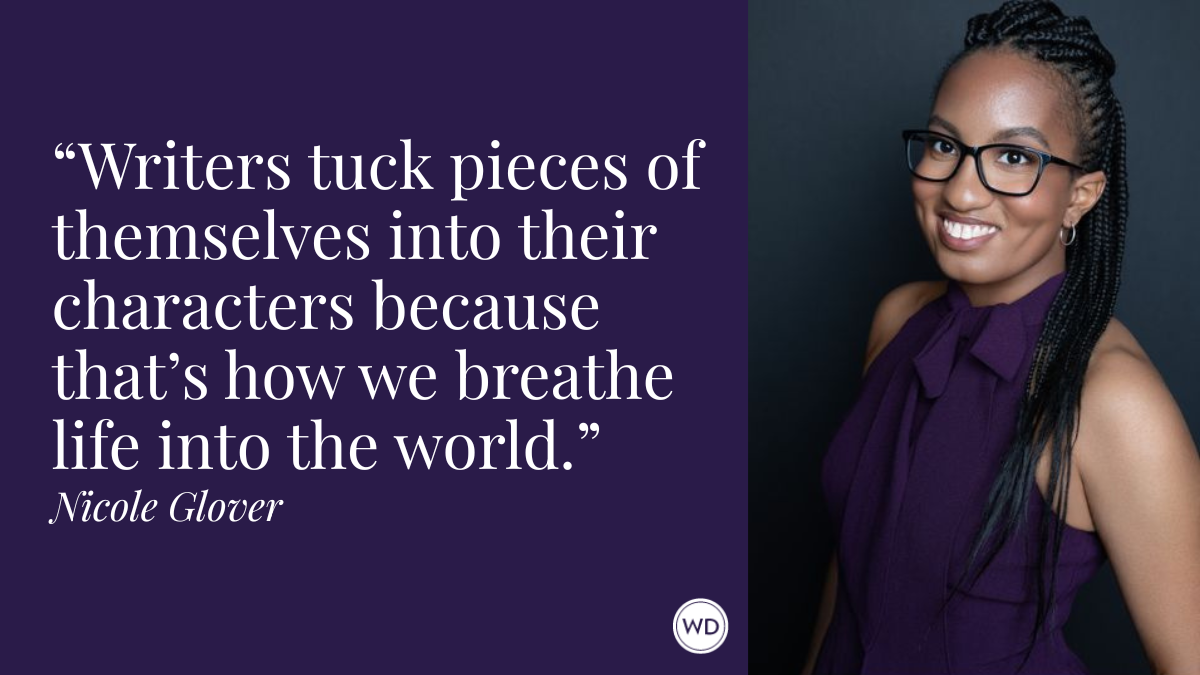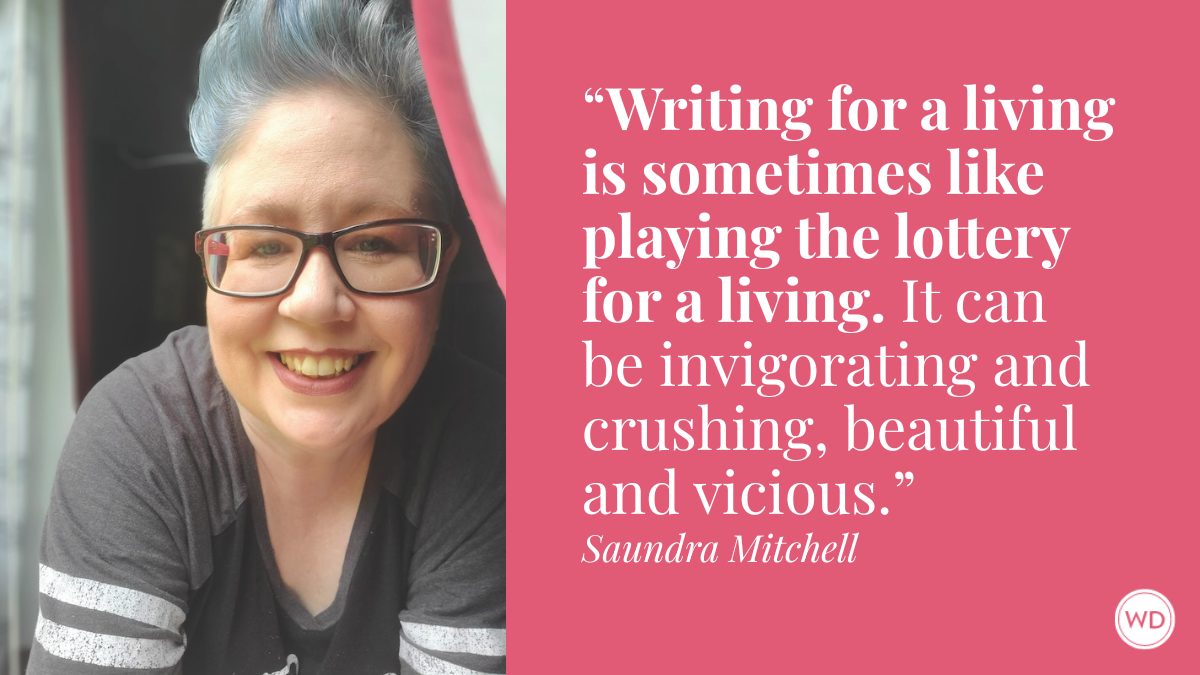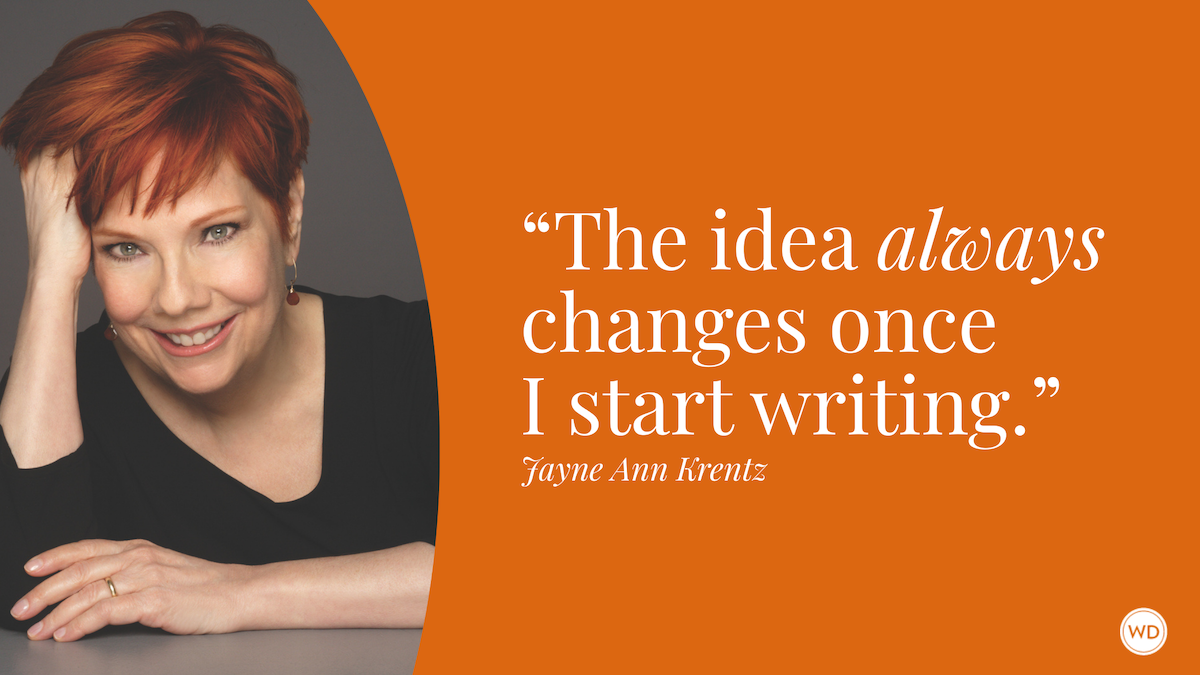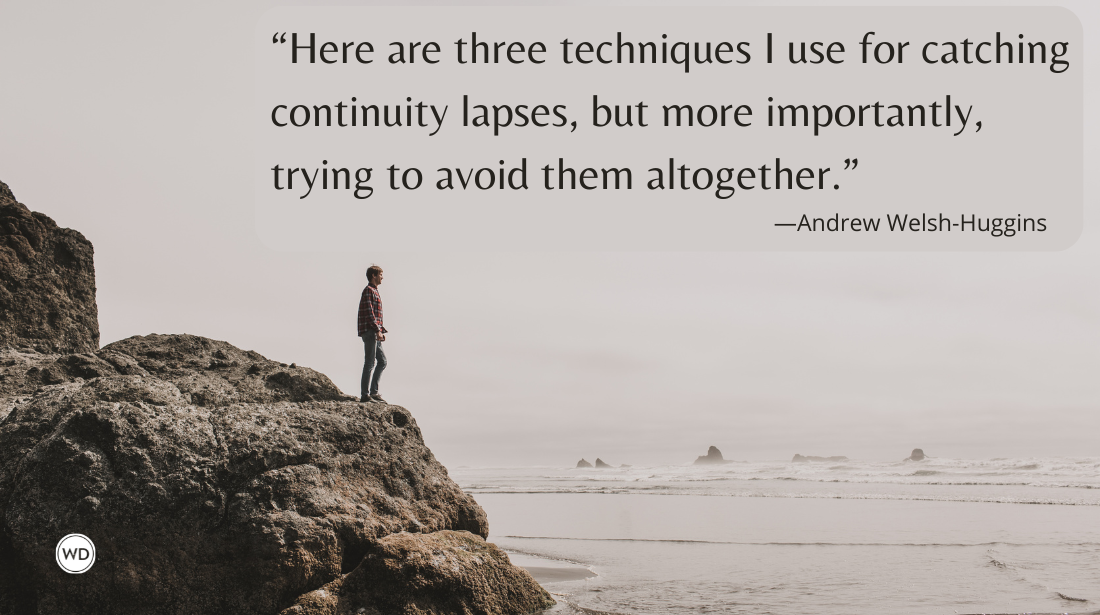Mystery Novel Writing: 5 FAQs on How to Do Excellent Research for Your Novel
International bestselling novelist Peter James reveals his secret to killer crime fiction: joining hands with the long arm of the law.
International bestselling novelist Peter James reveals his secret to killer crime fiction: joining hands with the long arm of the law.
It wasn’t a pleasant experience, coming home in the evening to discover our home had been burgled. But I never realized, 30 years ago, standing in the chaotic mess the thieves had left behind, how grateful I would be to them one day.
I’d just released my first novel, a very bad spy thriller that I now deliberately keep out of print. The young Brighton detective, Mick Harris, who came to take fingerprints noticed the book and gave me his card, telling me to contact him if I ever needed research help in the future. He was married to another detective, Renate, and my former wife and I became friends with them—and we began, in turn, befriending their friends as well, almost all of them also police officers.
Over the next decade, I started getting invites from Mick and Renate’s friends to spend time with them at work—in the police station, out on a patrol, and then, as they realized they could trust me to not write anything confidential, on raids, and ultimately to the most sacrosanct place of all, crime scenes. As I began incorporating fictionalized aspects of their work into my novels, always with their prior approval, I realized they were pleased to have someone writing accurately about what they did—and about themselves, portraying them as rounded human beings rather than archetypes.
Fifteen years ago I was introduced to a young homicide detective inspector, Dave Gaylor. I remember entering his office and finding almost every inch of the work surfaces and floor covered in blue and green plastic crates bulging with manila folders. I asked him if he was moving offices, and he replied with a sardonic smile, “No, these are my dead friends!”
For an instant I thought I had met a total weirdo. Then he explained to me that in addition to his duties as a homicide detective, he had recently been tasked with re-examining all the unsolved homicides in the country, and applying the latest advances in forensics on them. “Each one of these crates contains the principal case file of an unsolved murder,” he said. “I am the last chance each victim has for justice—and I’m the last chance their families have for closure.”
I loved that very human aspect of him, and it is a trait I’ve come to realize is common among good homicide detectives. They bond with the family of the victim and it becomes personal to them. It is part of the reason you often see a detective pursuing a killer years after retirement.
Dave then asked me to tell him about the book I was working on—a psychological thriller called Denial. Halfway through he interrupted me, asking why I hadn’t thought of the police officers doing this and that … and why my character had done one thing instead of another. And I realized rapidly that he has a very big creative bandwidth. Again, that is a trait I’ve come to realize is common among good detectives: A homicide, like any major crime, is a huge puzzle, with hundreds and sometimes thousands of tiny pieces that have to be meticulously and painstakingly put together. But in addition to being scrupulously methodical, good homicide detectives are often lateral, out-of-the-box thinkers.
Dave and I became good friends and he helped me with many police and psychology aspects of the subsequent books I wrote. Then in 2001, my U.K. publisher, Macmillan, asked if I had ever considered creating a detective as a series character. I went to Dave, who had by now been promoted to Detective Chief Superintendent, Head of Major Crime for Sussex, and asked him how he would feel about being a fictional cop. He loved it, and Detective Superintendent Roy Grace was born.
Dave does not look like my fictional hero, nor does he have a missing wife, as Roy does, but we work very closely together on the planning of the novels, and Dave reads every 100 pages as I write, telling me how Roy—and his colleagues—would think and act, and also pointing me to other officers with whom I need to talk. His input gives me that crucial authenticity that I strive so hard to create in my writing, and in which I believe implicitly.
I’m often asked what I consider to be the most important aspect of a mystery novel—plot or character? My response is that research is every bit as important as these. I believe there is an inseparable trinity of character, plot and research, and that it is good research that gives the writer an air of confidence and authority that the reader instantly responds to. A crucial part of this is developing expert sources.
But not everyone is lucky enough to have been burgled (!). So what are the best ways to succeed in your firsthand research? Here are the answers to some of the biggest FAQs.
1. Is research like this into the world of the police really necessary? We’re writing fiction, after all …
The answer is simple. Think about how many hundreds of thousands of police officers there are, many of whom read fiction, and will be among your potential readers. Get their world right, and you might have a fan for life. Get it wrong and you’ll be in the trash can. You need an inside-out knowledge of anything you write about. Readers will be able to tell if you don’t have it.
I spent an entire day this year doing a 12-hour shift as a garbage collector in Brighton. Damned hard work, but it has helped me develop a wonderful character—and invaluable insight for a crucial scene in my next book.
2. I don’t know any police officers. How can I get access to them?
Remember “six degrees of separation”? The premise is that we are all no more than six people away from Kevin Bacon, or anyone else within the Western world. You are bound to have a friend who has a friend who has a relative who has a friend who knows a cop. Imagine that rather than a fiction author, you are an investigative journalist. Dig, dig, dig; ask, ask, ask! In my experience most cops are “people people.” They choose their line of work because it’s one of the few careers where you really can make a difference. It is a vocation rather than a mere job. And every cop has dozens of cop friends. So when you find your cop, invest in a nice lunch with him or her, get your cop to like you, to get excited by your story, and, crucially, to start suggesting other cops you should talk to.
Remember that police in general are institutionally suspicious of writers—many view us all as cop-hating journalists in search of a story. It is our job to convince them that we are not one of those. We are writing a crime novel, and we want to portray their world accurately. Once they understand that and trust you, doors will fly open.
If you absolutely can’t find a law enforcement contact this way, or yours isn’t especially helpful, don’t despair—there are numerous avenues still open to you. The first to try is the public relations office of your local police force.
3. I’ve got my police sources sorted out, but need to research villains further. Where do I begin?
Court is a great place to observe and listen to villains. Ask the clerk what cases are running, and which ones are coming up. (Nothing, and I mean nothing, if you can spare the time, is going to give you as rich a seam of general ideas for your work and as much authenticity as doing this.)
If it is possible to visit a prison in your area, that would also give you terrific face-to-face contact. Once you get established as a mystery author, visits like this become easier—I do a number of talks in different prisons every year, during which I get to meet prisoners (from murderers to fraudsters and petty thieves). Asking prison officials is another way. Long before I was an established author, I was able to spend a day at Broadmoor Hospital, England’s main criminal insane asylum, simply by writing to the governor there; it took me a year to get in, but it was well worth it. Forensic psychologists and psychiatrists can be terrific for insights, as can prison officers. Again, use that “six degrees” networking principle.
4. How much of my research should I put in my book?
It’s been famously said that you have to learn to “kill your darlings.” What that means is that it is important that you know everything about your subject, but you should only include what is absolutely essential for your readers to know. So, you have learned from your sources and your research how to dismantle, clean and reassemble the AK-47 assault rifle that your villain is using. It is good that you understand the gun inside out, but readers don’t need four pages describing the process of your perp doing this. There is a large sign all authors should have in front of them when writing: “DOES IT DRIVE THE NARRATIVE FORWARD?” Every single sentence you write has to pass that test.
5. What if someone I know recognizes himself in my book?
Well, I should point out that many cops love having their real names in novels—I do it all the time, at their request! But regardless, someone recognizing himself means you’ve done your job. You’ve created a flesh-and-blood character, which is what makes books come alive. My favorite author, Graham Greene, said, “Every writer has to carry a chip of ice in his heart.” He meant that to write well, you cannot worry what anyone will think about you, and you cannot worry about offending anyone. Except, of course, anyone you might need for future research …
*********************************************************************************************************************************
Follow me on Twitter: @BrianKlems
Check out my humor book, Oh Boy, You're Having a Girl.
Sign up for my free weekly eNewsletter: WD Newsletter









